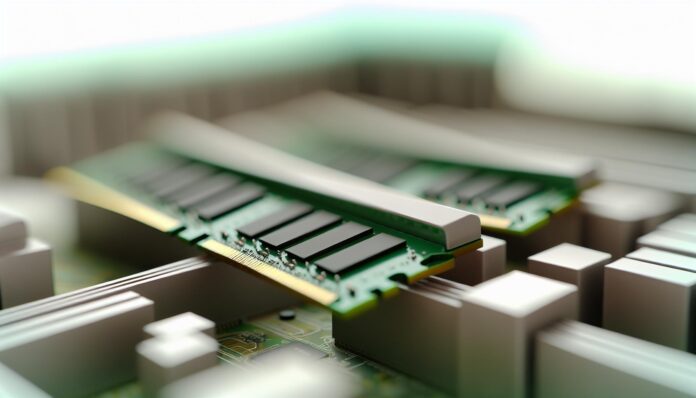Why Memory Outshines Time in Computational Power
In computing, time and memory (also known as space) are the cornerstone resources that fundamentally shape the efficiency of algorithms. Most importantly, every algorithm inevitably consumes both: it takes time to execute and requires memory to store intermediate and final results. Because of this dual dependence, a deeper understanding of these resources is essential for any computing professional.
Moreover, recent breakthroughs have demonstrated that while both resources are critical, memory offers an unexpected advantage. By recycling stored data, memory becomes a potent tool for optimizing performance. Therefore, focusing on memory optimization can lead to dramatic enhancements in algorithmic efficiency. This insight is transformative, as discussed in detail on platforms such as Daily.dev and explored by the broader community on Hacker News.
Understanding the Time-Space Trade-Off
The time-space trade-off is a fundamental concept in algorithm design that has captivated computer scientists for decades. Initially, the prevailing thought was that any improvement in time performance would inevitably come at the cost of increased space complexity. For example, dynamic programming often accelerates computation by caching results, but this approach consumes additional memory. Most importantly, this trade-off was seen as an unavoidable balancing act between speed and storage.
Because time is a resource that flows inexorably in one direction — always moving forward — it cannot be reclaimed once spent. Conversely, memory can be reused with minimal overhead, which explains why modern research, as reported in Computational Complexity Blog, advocates for innovative strategies that leverage memory reuse. Besides that, several educational platforms like Fiveable have emphasized the critical nature of understanding these trade-offs to design efficient, scalable algorithms.
Breakthrough: Less Memory, Same Computational Power
The foundational belief that memory requirements scale directly with time complexity has been astonishingly upended. Most importantly, recent proofs have demonstrated that algorithms can be simulated with significantly less memory than previously thought. Because memory can be recycled efficiently, research led by Ryan Williams reveals that practically every algorithm can now be implemented using a space complexity markedly lower than what traditional models predicted.
In fact, Williams’ work shows that any algorithm running in time t(n) can be simulated in space almost quadratically less: specifically, DSPACE(√t(n) log t(n)). Therefore, what was once believed to be an inherent constraint is now a challenge we can overcome. This breakthrough is a key topic in articles like Quanta Magazine’s exploration and underscores the need to re-evaluate established computational models.
Why Memory Reigns Supreme
There is a simple yet powerful reason why memory can be more influential than time: memory is reusable while time is linear and irrevocable. This subtle difference means that even a limited quantity of memory can propagate a significant computational advantage if managed properly. When memory is used to store and later quickly retrieve key pieces of data, the overall speed of the computation can be increased even if the individual operations take longer than anticipated.
Moreover, this paradigm shift in algorithm design opens new windows of opportunity for researchers and developers alike. Most importantly, it encourages innovative data structures and memory management techniques that are less time-consuming. As noted in discussions on Hacker News, the efficient reuse of memory is becoming a key factor in solving complex computational problems that once seemed insurmountable.
Implications for Algorithm Design
This new understanding of memory efficiency compels a fundamental rethinking of algorithm design practices. Developers are now encouraged to prioritize space optimization, particularly in environments where memory availability is limited. Because memory can be effectively reused and manipulated, optimizing for space not only saves resources but also contributes to more stable and scalable algorithms. Case studies and tutorials on platforms such as Daily.dev provide comprehensive examples that support this strategy.
Besides that, most importantly, this balance between speed and memory use highlights that there is no one-size-fits-all solution. In high-performance settings without severe memory constraints, optimizing for time may still be viable. However, in many real-world scenarios, devices have limited memory, making space efficiency a critical objective. Therefore, developers should consider the specific needs of their applications and leverage insights from both theoretical and empirical studies to achieve the best possible outcomes.
Real World Applications and Future Directions
The practical implications of enhanced memory efficiency stretch far beyond academic theory. In today’s rapidly evolving tech landscape, industries from data science and AI to cryptography and embedded systems are already benefiting from space-optimized algorithms. For instance, advanced tree evaluation methods that optimize memory usage have begun to influence cutting-edge research, ensuring that even resource-constrained devices can handle sophisticated computations.
Furthermore, as we look toward the future, memory optimization is expected to drive significant advances in algorithm design. Most importantly, the ability to simulate complex processes using more efficient memory management techniques is a game changer. As hardware continues to evolve and data volumes continue to expand, strategies for space optimization — as discussed on Fiveable — will be crucial for sustaining performance improvements across multiple fields.
Conclusion
Ultimately, the long-standing contest between time and memory in algorithms has encountered a turning point. Most importantly, modern research has illuminated how a smart allocation of memory resources can dramatically enhance computational efficiency. Because memory can be recycled and managed in ways that time simply cannot, the focus on space optimization is forging a new path in algorithm design.
In conclusion, the revolution in memory efficiency is not just a minor tweak to existing methods; it represents a profound shift in our fundamental understanding of computational limits. Therefore, as computational challenges grow and evolve, mastering memory’s potential will be key to unlocking the next generation of algorithmic innovations.
References
- Quanta Magazine – For Algorithms, a Little Memory Outweighs a Lot of Time
- Hacker News Discussion – For algorithms, a little memory outweighs a lot of time
- Computational Complexity Blog – You Need Much Less Memory than Time
- Daily.dev – Mastering Algorithm Complexity: Time & Space Optimization
- Fiveable – Time-Space Trade-off



